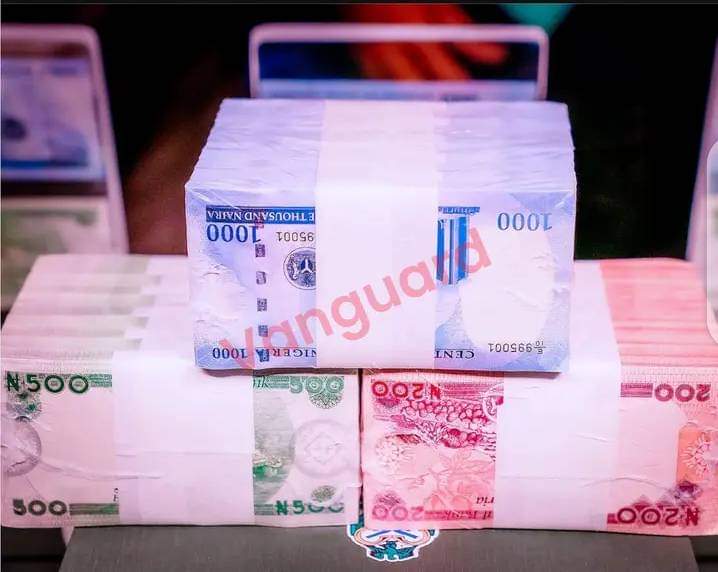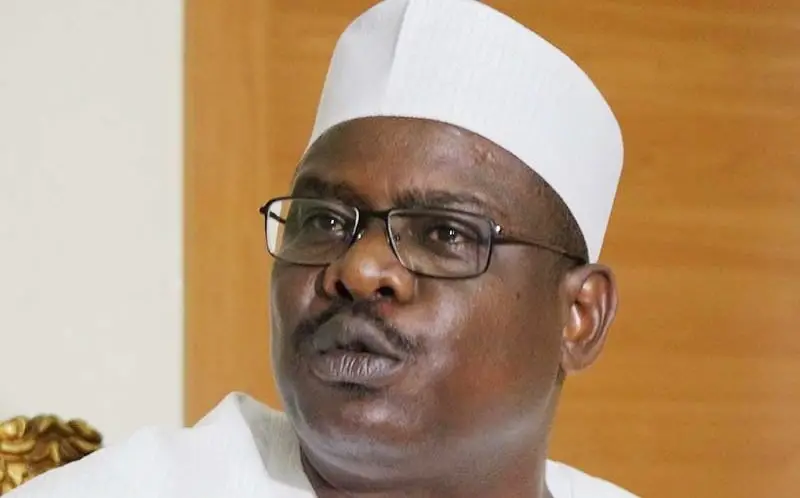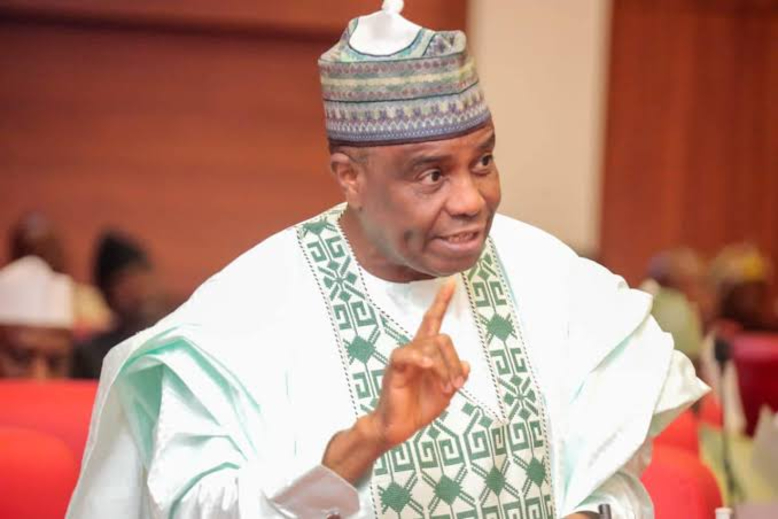News
Inflation: Knocks, Kudos Trail CBN’s Hike Of Interest Rate To 16.5 Percent

In less than three months after it had raised the country’s interest rate to a double-digit, 15.5 percent, the Monetary Policy Committee (MPC) of the Central Bank of Nigeria (CBN) again on Tuesday raised the benchmark for lending to 16.5 percent as a bullish move to tackle inflation.
At the same time, CBN says it is eyeing plans to reduce the volume of N500 and N1000 notes in circulation “over time” to tame inflation.
Recall that the CBN had earlier increased the MPR by 100 basis points, from 13 percent to 14 percent in July this year.
The bank has made several justifications, to address Nigeria’s skyrocketing inflation in line with basic economic theory, stating that interest rate is inversely related to inflation.
Announcing the committee’s decision at the end of its two-day meeting on Tuesday, the CBN Governor, Mr Godwin Emefiele, said the MPC also decided to hold all other parameters constant.
The Asymmetric Corridor of +100/-700 basis points around the MPR was, thus, retained; the Cash Reserve Ratio (CRR) was maintained at 32.5 percent and the Liquidity Ratio of 30 percent was also maintained.
According to Emefiele, 11 members of the MPC unanimously okayed monetary decisions.
READ ALSO: Naira Redesign: Buhari, Emefiele Played Nigerians, Only Changed Dye Of Currency – Sowore
“Nine members voted to raise the MPR by 100 basis points, while two voted to raise rates by 50 basis points,” he said.
Emefiele said in deciding on its policy stance, the MPC felt that all the causative factors in the economy, like the Russian-Ukraine war and supply chain disruption were still dominant.
“Loosening option was not desirable at this meeting. The committee also felt that with the rising inflation, loosening the stance of policy would lead to a more aggressive rise in inflation.
“As regards whether to hold, the MPC was of the view that doing that close to December festive season and expected heavy spending during the 2023 general election would jeopardise the gains of previous policy rates tightening.
“It would plunge the economy deeper into the inflation trap,” he said.
He added that the MPC decided to continue tightening at a somewhat moderated rate.
“At this meeting, the options considered were whether to hold or further tighten policy rates.
“The option to loosen was not considered as this will greatly undermine the gains of the three previous decisions,” he said.
In the same vein, the bank governor, Emefiele, announced plans to reduce the volume of N500 and N1000 notes in circulation “over time.”
The Governor made this known in his briefing to the media at the monetary policy communique held on Tuesday.
He was responding to questions about the ease of counterfeiting N1,000 notes and if there were plans to reduce the volume
READ ALSO: JUST IN: CBN Gov, Emefiele Explains Features Of New Naira Notes.
Emefiele claimed that the effort is aimed at curbing the inflation rate, which he partly blamed on the higher-denominated naira notes.
He started by using the UK as an example, saying, “In the UK, they have a denomination of 50 pounds, but the most spent denomination is 20 pounds. Nobody spends 50 pounds. If you carry 50 pounds in the UK, they will suspect, sic, report you.”
And then comparing this to Nigeria, “The reverse is what is happening in Nigeria.
“Nigerians want to carry N500 and N1,000. And in fact, we are beginning to think that increasing the high denomination is also part of fueling inflation. So, yes, we will launch N200, N500, and N1,000; over time, we will reduce the volume of N500 and N1,000 in circulation. Let people carry N50 around.
“If you want to do high-value transactions, embrace online, embrace our agency programme, embrace our mobile banking programme, that is what you need,” he said.
The latest monetary decision has generated both knocks and kudos from economic experts, and stakeholders.
Raising interest rate alone won’t tame Nigeria’s inflation — Experts
In a swift response to the apex bank’s policy to raise the interest rate, a Financial Inclusion/Wealth Management expert, Mr Idakolo Gbolade said an interest rate increase alone wouldn’t tame Nigeria’s inflation and ailing economy.
Gbolade, reacting to the CBN latest interest rate increase to 16.5 percent, made this disclosure in a chat with DAILY POST.
In sharp contrast to CBN’s position on the latest monetary decision, Gbolade, on the contrary, stated that owing to the political atmosphere, the current government may not achieve any change in the nation’s economy before the handover in 2023. He added that the decision could further worsen the continued fall of the Naira.
“The CBN decision is predicated on their constant effort to tame Nigeria’s stubborn inflation, which has not relented despite consistent increases in interest rates in the last six MPC meetings.
“The effort is also geared towards mopping up excess liquidity in the economy.
“The CBN is also aiming at boosting investors’ confidence and profitability projections regarding foreign inflows which can positively impact our foreign reserves.
“The MPC decision could further cause the value of the Naira to continually decline due to persistent scarcity of the Dollar.
“The rising cost of food items will not decrease because of the declining value of the Naira.
“Energy cost is also projected to increase as the cost of doing business in the sector will significantly increase.
“In fairness to the CBN, these measures are supposed to tame inflation and cause the economy to bounce back, but these policies alone cannot cause the needed change looking at political activities that are unfolding and this present government might not be able to do much before handover in 2023,” he stated.
Raising MPR will spike inflation
Also, reacting to the development, the Chief Executive Officer, BIC Consultancy Services, Mr Boniface Chizea said he anticipated that the MPC would increase rates but didn’t expect it to be that high.
“Yes! This was anticipated but probably not as steep as an increase of 100 basis points considering the rapid pace at which the rates have been increased over the last two to three meetings.
“With the inflation rate rising beyond 20 per cent, MPC did not have much choice. No corporate treasurer will be ready to save money today and earn returns several basis points below the inflation rate!
“So, it is imperative to raise base interest rates by this hike. Unfortunately, on the other hand, interest rates as factor costs have the potential to spike the inflationary pressures,” he said.
A Professor of Economics at the Olabisi Onabanjo University, Ago-Iwoye, Ogun, Sheriffdeen Tella, who didn’t see the increase coming, said the higher rate would compound inflation.
“When I heard about it, I was shocked. The higher interest rate will compound the inflation woe.
“Government should reduce its expenditure and CBN should stop lending to the government. The exchange rate should further appreciate – those are the solutions,” he said.
However, Prof. Ndubisi Nwokoma, Director, Centre for Economic Policy Analysis and Research (CEPAR) University of Lagos, said the increase of the benchmark rate would fight inflation.
“Yes, the increase was expected. This is as it should be given that inflation has risen to over 21 per cent and that the burden of debt service is increasing.
“The current negative return to capital vis-a-vis inflation should be addressed with this move.
“Although this tightening of credit by this move will impact negatively on economic growth; it will nonetheless help to fight inflation as well as attract new capital into the economy and address the challenges in the exchange rate of the naira,” he said.
For the Executive Director of Nigerian Workforce Strategy and Enlightenment Centre (NIWOSEC), Dr. David Ehindero the increment of the Monetary Policy Rate (MPR) by 100 basis points to 16.5 percent from 15.5 percent will have a positive implication on the dwindling economy.
He emphasised that the Apex bank must ensure stability in the economy before introducing new guidelines and involvement of stakeholders is necessary too.
He said, “The Government should consider reducing the cost of Governance to enable more public spending for the masses or tax the masses.
“An increased tax rate is already burdened, and an inflation-infested society like Nigeria is the height of insensitivity. The majority of Nigerians can’t access goods in the market; Nigerians are not leaving; they are surviving. Let the government consider reducing the cost of Governance and seal every loophole in the economy through corruption and frivolous spending.
“Government should also look deep into the padding of our annual budget with projects that will have no direct bearing on economic growth because the ordinary man doesn’t know what MPC policy is.”
Enhindero appealed to the CBN to engage the public rigorously in enlightenment, especially on the issue of currency redesign for a better approach amidst the MPC policies implementation.
Borrowers, investors, pensioners will suffer from the interest rate increase
A don of Accounting and Financial Development at Lead City University, Ibadan, Prof. Godwin Oyedokun, said investors, borrowers, and pensioners would suffer from the policy.
He explained that theoretically, increasing interest rates leads to inflation reduction.
“The interest rate increase is not new; for instance, last year, England tried to increase the interest rate to curb inflation because it is believed that inflation will decline when the interest rate is up.
“While interest is rising, it will cool down prices but would make borrowing more expensive. In the interim, increasing interest rates will reduce inflation. It is within the purview of the Central Bank of Nigeria to intervene in Monetary policy.
“Of course, at times, it could also impact the cost of prices of products in the market. In theory, inflation and interest rate have an inverse relationship; when interest rates are low, inflation tends to rise, while when interest rates are high, inflation tends to reduce.
“If we have a high rate of inflation, what happens is that you lose the value of the equivalent of whatever you hold as an asset.
“There are two important things we are discussing, the interest rate and inflation. If the interest rate is high, it will increase the cost of borrowing; the borrowers will have to pass the cost to consumers by increasing the price of the product/service.
READ ALSO: JUST IN: Buhari To Unveil New Naira Notes Tomorrow – Emefiele
“On the other hand, if you are not borrowing money from the bank, instead keep depositing cash at the bank for saving or fixing, the rate of returns will be higher.
“Inflation will reduce the value of your savings not from the bank but from the economy. What happens is that a certain percent of inflation would have affected it. So if the interest is high, say 16 percent and the rate of inflation is 10 percent, you will be left with 6 percent.
“Those getting loans will suffer for it, while those with deposits in their accounts will gain more money. If you do plus and minus, the situation is better than having a low-interest rate.
“Pensioners will also suffer because pensions are static and this will reduce their purchasing power. The only people that will gain are those who keep their money as a deposit with high-interest rates,” he said.
In all this, Nigerians seek a quick end to poverty, rising inflation, insecurity, among other economic miseries.
DAILY POST
News
New Tax Laws: Suspend January 2026 Implementation — Senator Ndume Tells Tinubu

Former Senate Leader, Ali Ndume has appealed to President Bola Ahmed Tinubu to suspend the January 1, 2026, implementation of the country’s new tax laws amid growing controversy.
The federal lawmaker made the appeal in a statement he issued on Wednesday in Abuja.
This comes as the Nigerian Bar Association demanded the suspension of the implementation.
Recall that a member of the House of Representatives, Abdussamad Dasuki, had last week called the Parliament’s attention to alleged alteration to the tax laws.
READ ALSO:FIRS Confirms NIN As Tax ID
Chairman of the Presidential Fiscal Policy and Tax Reforms Committee, Taiwo Oyedele, in an interview on Arise Television on Wednesday, called for calm over claims of alterations in tax laws and urged Nigerians to allow lawmakers to complete their investigation before drawing conclusions.
Speaking on the ongoing controversy about the tax laws, Ndume noted that proceeding with the implementation without getting to the root of the alleged forgery will create a legitimacy challenge for the tax laws.
His statement read, “With the controversy surrounding it, the President should constitute a team to verify the veracity of the claim and act accordingly.
“As the responsive leader that he has always been, he should look at it to find out if the copy that was signed and the claim of alterations are genuine so that he will do the needful to bring the controversy to rest.
READ ALSO:US Threatens To Sanction Countries That Vote For Shipping Carbon Tax
“If not, the controversy will continue.” That is to say, the tax law will not be implemented, because you can’t build on nothing.
“So, Mr. President should suspend the implementation until the issues are resolved because so many civil society organizations, the Arewa Community, and the Nigerian Bar Association are saying that he should withdraw the tax law and investigate the allegation of forgery.”
“Therefore, Mr President should get to the root of the allegation of forgery. The small committee that will be set up should look into it while the House of Representatives does its own.”
News
Tambuwal Engages Security Agencies As US Airstrikes Hit Own LG In Sokoto

Senator Aminu Waziri Tambuwal, representing Sokoto South, has called on residents of Sokoto State to remain calm following reports of United States airstrikes targeting ISIS-linked terrorists on Christmas Day.
In a statement posted on his personal X account, the former Sokoto State governor said he was aware of reports concerning the airstrikes, which marked a direct US military action in Nigeria based on intelligence about ISWAP threats, and urged citizens to remain law-abiding while authorities clarify the situation.
“I have noted the reports concerning an airstrike carried out as part of ongoing counterterrorism efforts through cooperation between the federal government of Nigeria and the United States,” Tambuwal said. “I urge our communities to remain calm and law abiding as relevant authorities clarify the circumstances surrounding the operation.”
READ ALSO:US Dept Of War Shares Video Of Air Strikes In Nigeria
Tambuwal assured constituents that he was engaging with relevant security agencies to obtain full details of the operation and to ensure that necessary things were in place to protect civilians.
“I wish to assure the people of Sokoto South that I am in active talks with relevant security authorities to obtain full details and ensure that all necessary safeguards are upheld,” he added.
The senator emphasised that counterterrorism operations were aimed strictly at criminal and terrorist elements threatening public safety, not innocent civilians who are often victims of insecurity. He stressed that the protection of civilian lives must remain central to all legitimate security actions.
He further called on community leaders, traditional institutions and residents to work closely with security agencies by sharing credible intelligence and resisting misinformation capable of causing fear or heightening tension.
News
Rep Moore Confirms 12 Tomahawk Missiles Launched In Sokoto

No fewer than 12 Tomahawk missiles were on December 25 launched against terrorists in Sokoto State by the United States military.
Rep Riley M. Moore, the lawmaker representing Virginia’s Second District in the Congress, confirmed this in an interview with Fox News.
The US military operated in Sokoto State on Christmas night, bombing terrorists killing innocent people in parts of Nigeria.
READ ALSO:Trump’s Airstrikes: Halt Military Cooperation With US Immediately – Sheikh Gumi Tells Tinubu Govt
Some security analysts claimed on Friday that the operation was unsuccessful and had no significant impacts on the targeted terrorists.
According to them, the airstrikes landed in safe places including farms where there was no history of terrorists’ hideout.
But details began to emerge on Friday night, indicating that several terrorists were killed during the joint operations between the US army and it’s Nigerian counterpart.
READ ALSO:Nigerian Ringleader Of Nationwide Bank Fraud, Money Laundering Jailed In US, Says FBI
Moore said: “This year, thanks to President Trump, Radical Islamic Terrorists were on the receiving end of 12 Tomahawk missiles as a present.
“The successful strikes on ISIS, in coordination with the Nigerian government, is just the first step to secure the country and end the slaughter of our brothers and sisters in Christ”.
DAILY POST reports that residents of Sokoto State have been panicking since the US military operation.

 News5 days ago
News5 days agoPHOTOS: New Era In Furupagha-Ebijaw As Okpururu 1 Receives Staff Of Office

 News4 days ago
News4 days agoUBTH CMD Marks 120 Days In Office, Expresses Commitment To Providing Conducive Working Environment

 News5 days ago
News5 days agoOPINION: Gumi And His Terrorists

 News4 days ago
News4 days agoFIRS Confirms NIN As Tax ID

 News5 days ago
News5 days agoFG Declares Public Holidays For Christmas, New Year Celebrations

 Metro4 days ago
Metro4 days agoFintiri Pardons Man Sentenced To Death For ‘Killing Herdsman In Self-defence’, Others

 News5 days ago
News5 days agoOPINION: Christmas And A Motherless Child

 News3 days ago
News3 days agoJUST IN: Kano Lawmaker, Sarki Aliyu Daneji, Dies Hours After Colleague’s Passing

 News4 days ago
News4 days agoOPINION: My Man Of The Season

 News4 days ago
News4 days agoKWAM 1 Withdraws From Awujale Race, Ends Court Challenge




















